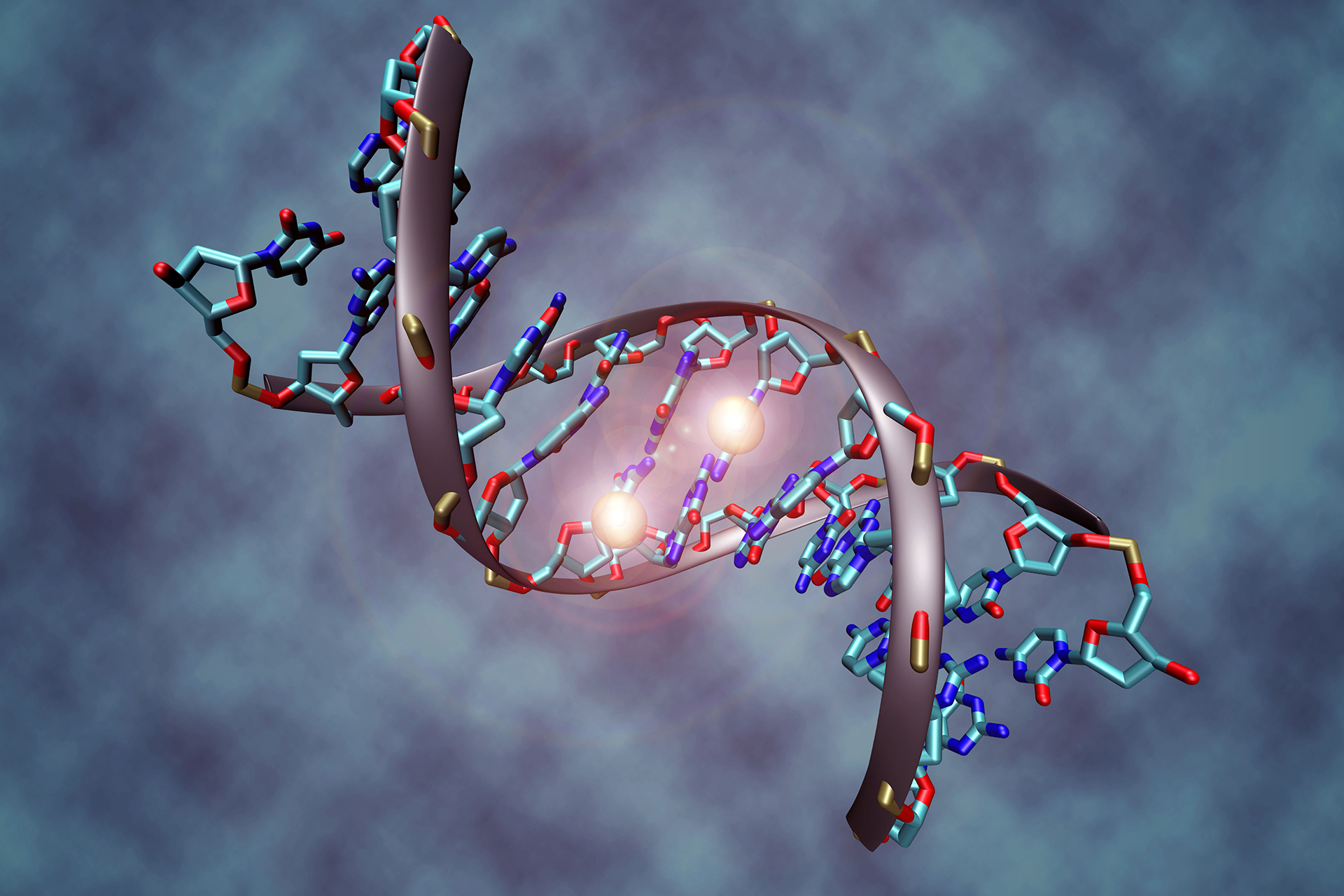Epigenetics play a crucial role in the development of cancer, according to two studies published in Nature.
Increasingly in personalised medicine, the genome of a patient's tumour is sequenced to help decide the best treatment (eg, BRCA mutations). However, the latest studies show why sequencing tumour epigenetics is also important. Epigenetics doesn't alter the underlying DNA sequence, but adds an extra level of control via markers that sit on top of it, which can turn genes on and off. Its role in cancer has been known for years (see BioNews 972 and 1073), but this is the first time that genetic and epigenetic profiles have been mapped simultaneously.
'We've unveiled an extra level of control for how cancers behave - something we liken to cancer's "dark matter".' said Professor Trevor Graham, director of the Centre for Evolution and Cancer at the Institute of Cancer Research in London.
Professor Graham is on the team that published two major studies in Nature – a collaboration between the Institute of Cancer Research, Queen Mary University of London and the Human Technopole in Milan, Italy.
The researchers mapped the genetic and epigenetic profiles of 30 patients with colorectal cancer at University College London Hospital. They looked at multiple samples from each patient to assess cancer heterogeneity (spatial differences in the same tumour). The first paper showed that epigenetic changes including methylation and chromatin remodelling were common, heritable, and drove cancer survival. The second paper outlined the huge amount of epigenetic plasticity within tumours, which is the adaptability of the tumour to changes in its environment.
Professor Andrea Sottoriva, head of the Computational Biology Research Centre at Human Technopole elaborated, 'We have for the first time been able to map epigenetic changes alongside the accumulation of DNA mutations as a colorectal tumour evolves. This provides exciting opportunities to create new treatments for cancer that don't target the effects of DNA mutations, but instead the epigenetic changes which determine how genes are read.'
'Genetic testing for cancer mutations only gives us part of the picture about a person's cancer – and is blind to 'epigenetic' changes to how genes are read. By testing for both genetic and epigenetic changes, we could, potentially, much more accurately predict which treatments will work best for a particular person's cancer,' said Professor Graham. 'It's not going to change clinical care tomorrow but could be an avenue for developing new therapies'.
Sources and References
-
Landmark Nature papers unveil 'dark matter' shaping cancer behaviour
-
The co-evolution of the genome and epigenome in colorectal cancer
-
Phenotypic plasticity and genetic control in colorectal cancer evolution
-
'Dark matter' find could change cancer treatment
-
Major breakthrough in cancer research: Papers reveal 'dark matter' that contributes to disease's growth
-
Exploring the 'dark matter' of colorectal cancer





Leave a Reply
You must be logged in to post a comment.